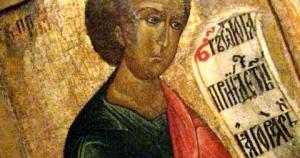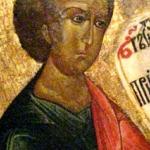 God is with us: justice with mercy are certain.
God is with us: justice with mercy are certain.
And yet.
And yet we will not see all the good things of God in this life. The consummation of God’s plan will only come when we are glorified and made new in the City of God. There is no Utopia in this life, no city that can ever be wholly just. Sometimes this makes the coming triumph of love seem a con, a sales pitch where the delivery of the goods comes after we are safely dead. What good is it to know God is with us, when we often will not see the good things of God until after death?
This would be very troubling if we were to put our faith, our reasonable trust, in history. If our hope was built on nothing less than the arc of history told with theological finesse, then our faith would falter. History does over the centuries show strong signs of God’s providential care. The sheer survival of humanity when we seem hell led to kill ourselves points to divine providence.
History is a story, however, that by herself can be told many ways. The data can be repackaged and the horrors emphasized. When I broke an arm, there was a cheerful sort of soul that encouraged me by pointing out that I did not break both arms. This is irritating and ignores the pain of the broken arm. So it is at times with history: the Whiggish soul sees hope in scientific advance, the skeptic the plastic filling our oceans.
God’s providence is not so very manifest (with apologies to Augustine) in history if we do not know God. Our faith is not in the stories we tell ourselves about history, but in God. After all we know God, so we believe in God. There are arguments and evidences that support this experience, but God is the ground of our trust. When we see God, then we can hope to see some patterns in history and have confidence that for each individual the end can be beautiful.
The end of history is coming for us all. At fifty-six, it is closer for me than for most people now alive. In a very few years, less than I have lived so far, I will see God and reasonable faith will become certainty. This is good. I need not go so far. In this life, God speaks, I learn to hear his voice and good things come. Over time these small experiences, with setbacks when I miss God’s voice, teach me a trust in the pattern of my history.
In sacred history, a rare even would take place where God would show one of his servant a bit of the plan. Habakkuk was one such prophet, vouchsafed (!) to hear God and have a bit of the pattern shown to him. Habakkuk lived in a nation that treated the poor unjustly and God promised to bring justice through the nation of Babylon. He warned Habakkuk of the trend of history. Of course, like with the city of Nineveh when Jonah preached, repentance and change in Judah and even Babylonian could postpone the great events.
God works surely, but God lacks no time. The end is coming, but our end need not be the End. Still the time comes when all the choices have been made and the larger outcome is certain. Caesar crosses the Rubicon. Walt Disney sketches a mouse. Rosa Parks will not sit in the back of the bus.
Change comes and the change is obvious to the prophet who can see. God speaks in a dialog with his prophet:
2And the LORD answered me: “Write the vision; make it plain on tablets, so he may run who reads it. 3For still the vision awaits its appointed time; it hastens to the end—it will not lie. If it seems slow, wait for it; it will surely come; it will not delay. 4“Behold, his soul is puffed up; it is not upright within him, but the righteous shall live by his faith.
There are things afoot now on the Earth that cannot be changed. There is a remnant of the faithful, people who have not bowed to powers, principalities, or powers. If we are part of the faithful remnant, then we will live, in this life or that to come. Perhaps, like Christians in many parts of the world the promise will be reserved for the life to come or perhaps, as with Habakkuk, we will see some of God’s justice with mercy.
If we would be just, righteous, then we will live by faith or as some translate it “faithfulness.” We look at history, do our duty, and trust God. The outcome, after all, is a mathematical certainty: the end is less than one hundred years away for anyone reading this now and the End of all things will come someday surely.
A remnant of mankind will choose justice and live faithfully. God, not abstract history, will be merciful to those people. May I be one, God helping me.
Saint Michael defend us!











